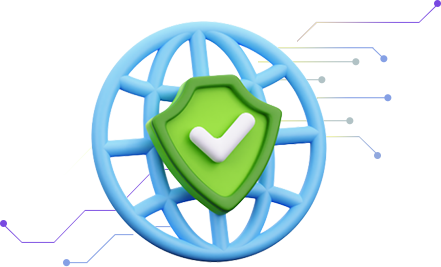We may earn a commission from some of the brands featured here, which can affect how their listings are displayed.
Advertising Disclosure
theprotectionguru.com is a free online resource that strives to offer helpful content and comparison features
to our visitors. We accept advertising compensation from companies that appear on the site,
which impacts the location and order in which brands (and/or their products) are presented,
and also impacts the score that is assigned to it. Company listings on this page DO NOT imply
endorsement. We do not feature all providers on the market. Except as expressly set forth in our
Terms of Use, all representations and warranties regarding the information
presented on this page are disclaimed. The information, including pricing, which appears on this
site is subject to change at any time.
What’s the Best Password Manager in 2026?
It depends on who’s using it. The truth is, not all password managers are built the same and their strengths (and weaknesses) often depend on who’s actually using them. Before you install one, it’s worth checking out these features to see which password manager truly fits your needs.

Our Ranking Approach
This site features companies that may provide us with compensation. Placement, ratings, and rankings are influenced by multiple factors, including company performance, popularity with visitors, reputation, and compensation. Not all companies available in the market are included. Compensation may impact how and where a company or product is displayed.
A smart password manager that keeps your logins organized, synced, and secure with tools like Password Health, breach scans, and email masking.
- Auto-sync on all devices
- Secure credit card & note storage
- Emergency password access
- Scan the web for data leaks
- Multifactor authentication
- Unlimited space for passwords & passkeys
An all-in-one password solution designed to protect your privacy, simplify your logins, and power a safer digital life.
- Encrypted storage secured with AES-256
- Automatic device-to-device sync
- Remote sign-out option
- Two-factor authentication
- Unique password generator
- Detailed security reports
Why Do You Need a Password Manager?
If we’re being real — most of us do. Between your streaming apps, work tools, online banking, and that one account you made just to track a package, you probably have more passwords than socks. A password manager keeps them all safe, organized, and ready when you need them without you having to remember a single one.
They’re not just for techies or businesses, either. Professionals use them to juggle multiple logins securely. Families rely on them to keep shared accounts in check. Even students and freelancers use them to avoid that “forgot password” spiral every other week.
But here’s the real upgrade: modern password managers don’t just store passwords; they generate strong ones, auto-fill logins, warn you about data leaks, and even securely share credentials when needed. Some can tell you if your passwords are weak or reused (no judgment, just friendly nudging).
In short, if you’ve got an online life, you’ve got a reason to use a password manager; because, “123456” stopped being clever a decade ago.
What Else Can Password Managers Do?
Generate strong passwords
They automatically create complex, random passwords that are nearly impossible to guess or crack.
Auto-fill and save logins
Instead of typing credentials each time, they fill them in securely, speeding up your browsing and reducing typos.
Monitor breaches
Many can alert you if your credentials appear in data leaks or dark web scans, giving you time to change them before hackers strike.
Secure sharing
Share passwords safely with family members or colleagues without revealing the actual password.
Multi-device syncing
Access your vault on your laptop, phone, or tablet. Your passwords stay updated across all devices.
Built-in authentication tools
Some even include two-factor authentication (2FA) and biometric logins for an extra layer of protection.
Free vs. Paid Password Managers
Free password managers get the job done. They store your logins, fill out forms, and whip up strong passwords without breaking a sweat. They’re ideal if you want reliable, everyday protection without another subscription to track. The trade-off? Most limit syncing to one device and skip the premium frills like breach alerts, password sharing, or detailed reports.
Paid password managers, on the other hand, bring the full experience. You get smooth syncing across devices, family or business plans, and priority support. They also throw in bonus features like password health reports, dark web monitoring, and even extras like VPNs or encrypted storage.
Extra Features
The key features to look for in antivirus software depend on your specific needs:
Password health reports
Regularly check for weak, reused, or compromised passwords and fix them instantly.
Dark web monitoring
Get alerts when your credentials appear in known breaches or hacker forums.
Secure sharing
Safely share access to accounts without showing the actual passwords.
Zero-knowledge encryption
Not even the password manager company can see your vault.


